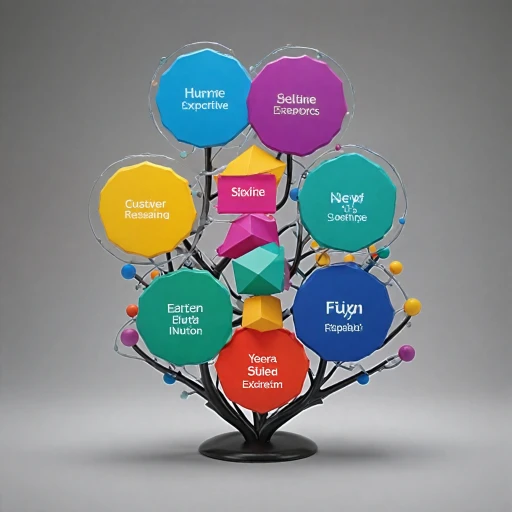
The Role of AI in HR Decision-Making
The Integration of Artificial Intelligence in HR Processes
The role of artificial intelligence in HR decision-making is transforming how employers conduct their hiring processes. AI is not just a buzzword; it's a powerful tool that helps streamline HR operations. From the background check to the final hiring decision, AI provides insights that are both efficient and comprehensive. Employers increasingly rely on AI-driven systems to handle tasks such as background screening, employment background checks, and credit reporting. These systems allow for a more thorough screening of candidates by leveraging large datasets which include consumer reporting and criminal record information. By automating these processes, employers can make faster, more informed decisions without compromising accuracy. However, while AI can enhance decision-making, it requires a balance to ensure fairness. A significant part of its integration involves understanding the implications of pre-adverse action notices. These are critical in maintaining transparency and compliance during the action process. Employers must learn to navigate this landscape carefully to avoid adverse actions that could be detrimental to candidates. By integrating AI thoughtfully, companies can provide fair opportunities during the pre-employment phase and develop a more streamlined action process. As HR professionals embrace these advancements, the industry continues to evolve and adapt, paving the way for more equitable hiring practices in the future. The transition to AI-driven HR processes highlights the need for a robust understanding of these tools' implications in the workplace, ultimately shaping the future of employment.What is a Pre-Adverse Action Notice?
Exploring the Essentials of These Notices in AI-Driven HR
In today's AI-driven human resources landscape, the concept of pre-adverse action notices has become a critical part of the hiring decision process. These notices serve as an important mechanism for ensuring transparency and fairness when a potential adverse hiring decision is based on information from employment background checks.
A pre-adverse action notice is essentially a heads-up for candidates. When an employer uses a consumer reporting agency to conduct background screening, they are obligated to inform the candidate if the information in the report could negatively affect their employment opportunity. This is particularly relevant when the background check reveals a criminal record or other adverse information.
Once the employer decides that the information could adversely affect the applicant's chance for employment, they must provide this notice before any final decision is made. This process ensures that applicants have an appropriate amount of time to review and respond to the information. It's a critical step in the pre-employment screening process, allowing candidates to check for errors in the report and, if necessary, make corrections.
Providing a pre-adverse action notice is not just a matter of ethical practice; it's also a legal requirement under the Fair Credit Reporting Act (FCRA). It establishes a waiting period, granting candidates an opportunity to dispute any inaccuracies or explain any circumstances surrounding their background. For employers, this adds a layer of complexity to the action process, making it essential to learn about compliance obligations to prevent legal repercussions.
For further insights into how AI technology intersects with HR compliance, you can learn more about the importance of crafting clear and compliant EEOC position statements.
In a landscape where AI assists in evaluating candidates, pre-adverse action notices ensure that the hiring process remains fair and equitable, balancing the power between employers and applicants while mitigating the risks of inaccurate report-based decisions.
Legal Implications and Compliance
Legal Implications in Utilizing AI Within HR Processes
In the modern hiring process, AI continues to revolutionize how employers screen and make employment decisions. Yet, it is vital for organizations to understand the legal implications, especially when it involves pre-adverse action notices stemming from employment background checks. Employers who rely on AI for background screening should be aware of the Fair Credit Reporting Act (FCRA), which mandates certain obligations like providing a pre-adverse action notice before making any adverse employment decisions based on consumer reports. This legal framework ensures that candidates, or applicants, have an opportunity to review and respond to any unfavorable findings in their background check. The process involves several key steps:- Pre-adverse action notice: This notice must inform the candidate of the potential adverse action and provide a copy of the background report, along with a summary of rights under FCRA.
- Waiting period: Employers must allow a reasonable amount of time, typically five business days, for candidates to dispute or explain any inaccuracies in their background checks before a hiring decision is finalized.
Challenges in Implementing AI with Pre-Adverse Action Notices
Navigating the Complexities of AI Implementation with Pre-Adverse Action Notices
The integration of AI into the hiring process is not without its difficulties, particularly when it comes to pre-adverse action notices. One of the primary challenges faced by employers is ensuring that the human resources processes, including screening and decision-making, align with legal expectations. This includes adhering to the guidelines established for the fair credit reporting act and other relevant laws. The use of AI in pre-employment background checks requires that employers manage the timing and delivery of adverse action notices effectively. When a candidate is subjected to a background check, and information obtained may adversely impact their hiring decision, it is crucial that the employer sends a pre-adverse action notice. This notice must inform the applicant of the potential adverse action based on their background, providing them with a fair amount of time, or waiting period, to address any discrepancies found in the report. AI systems must be designed to respect these legal mandates automatically, ensuring that the employers remain compliant and avoid potential litigation that could arise from improper action processes. The technology must handle the complexities involved in triggering pre-adverse action notices, generating adverse action letters, and managing the engagement with the applicants. Moreover, understanding the specifics of different situations, such as when a credit reporting agency or consumer reporting agency is involved, adds another layer of complexity. Companies need to continuously learn and adapt their AI systems to efficiently handle these nuances, effectively bridging the gap between technological automation and legal compliance. In sum, while AI offers tremendous potential to streamline the screening and hiring process, employers must remain vigilant about the legal landscape governing employment background checks and action notices. Careful implementation and ongoing oversight are paramount to ensure that the use of AI enhances, rather than complicates, HR processes.Best Practices for Using AI in HR
Implementing AI for Enhanced HR Practices
To effectively navigate the complexities of AI-driven HR processes, employers must adhere to best practices, ensuring compliance and efficiency. As you integrate AI into your HR strategies, consider these guidelines:
- Understand the Legal Landscape: Familiarize yourself with the requirements and implications of pre-adverse action notices. This requires understanding the difference between an action notice and a pre-adverse action notice, and knowing the necessary waiting periods for applicants to respond might prevent legal issues later on.
- Ensure Data Quality: The accuracy of employment background checks is paramount. Implement rigorous data validation processes to verify the accuracy of candidate data from credit reporting and consumer reporting agencies. This is crucial in the decision-making action process, especially when considering candidates with a criminal record.
- Transparent Communication: Provide clear and timely communication throughout the hiring decision process. Employers should inform applicants about adverse actions promptly, offering a fair chance for them to correct inaccuracies in their background checks before final employment decisions are made.
- Fair Assessment Practices: Conduct regular audits of your AI tools to ensure no bias in screening and assessing applicants. Evaluating the AI-driven processes can mitigate the risks of unintentional discrimination in pre-employment decision-making.
- Continuous Learning and Adaptation: Keep abreast of the evolving landscape of AI in HR. Continuous training and learning help in adapting new tools and practices effectively. Employers should remain updated with the latest in AI and employment practices, thereby ensuring that processes not only comply with current fair credit practices but also anticipate future ones.
By adopting these practices, you can effectively harness AI's potential while safeguarding against the pitfalls of adverse actions and ensuring a fair hiring process for all candidates.
Future Trends in AI and HR Compliance
Anticipating Shifts in AI-Driven HR Compliance
The landscape of compliance in HR processes is continuously evolving, and artificial intelligence is at the forefront of this transformation. Employers are increasingly relying on AI systems to streamline the hiring process, including background checks and pre-employment screenings. As these technologies advance, there are several trends that HR professionals should be aware of:- Increased Automation and Efficiency: AI-based systems will continue to enhance decision-making processes by providing detailed reports and insights for employers. This allows for more informed hiring decisions, reducing the amount of time spent on manual checks and increasing the overall efficiency of background screening.
- Enhanced Data Protection and Privacy: With AI handling vast amounts of sensitive applicant information, such as criminal records and credit reports, there will be a growing emphasis on data protection. Compliance with fair credit reporting agency guidelines will become more critical as AI systems refine their ability to manage consumer information securely.
- Adaptive Legal Frameworks: Legal implications of using AI in HR processes, such as pre-adverse action notices and the waiting period between notifications, will necessitate adaptations in legal frameworks. Employers must stay updated with these changes to maintain compliance and provide appropriate action letters when needed.
- Greater Transparency in Decision-Making: Employers will need to ensure that their AI systems can explain the basis of employment decisions clearly. Transparency in reporting the reasons behind adverse action decisions, based on background checks, will be essential to uphold fairness and regulatory compliance.
- Continuous Learning and Improvement: AI systems are designed to learn and evolve. Employers will need to regularly review and refine their AI strategies to adapt to new developments and ensure effective applicant screening while complying with emerging standards and regulations.













